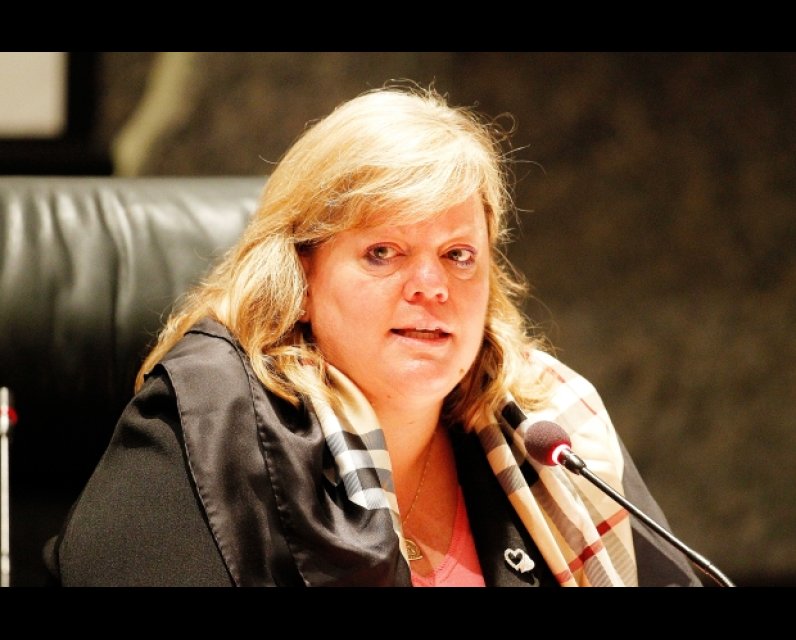Unpublished Opinions
Martin is currently a Senior Advisor in the Office of the Hon. Bob Chiarelli, Minister of Energy. Martin’s career has spanned public and non-profit sectors at national and international levels. His professional experiences are marked by a commitment to sustainability and performance- and strategy-based administration. He considers Ottawa home but currently lives in Toronto.
City of Ottawa lacks vision in unambitious climate change plan

The City has finally released its 'new' climate action plan. I thought you
may be interested in the new release below. And I'm very curious to hear
your thoughts.
If I'm lucky enough to earn the support of voters I will bring a strong
negotiating arm to council and ensure our next generation climate plan
matches the will of our citizens.
Martin
Ottawa’s Air Quality and Climate Change Management Plan (see PDF link below),
released yesterday, demonstrates a lack of vision for the city and more needs to be done to make Canada’s capital the most sustainable city in the country, says Martin Canning.
The plan notes that greenhouse gas reduction targets between 2004 and 2012 were not met and the updated plan’s revised 12-year timeline has unambitious goals to address climate change in the city.
“The plan is a step in the right direction, but I would welcome more concrete, measurable goals to hold the city, and all stakeholders focused on achievable results,” says Canning, a candidate in downtown Ottawa’s Somerset Ward in the upcoming municipal election campaign. “There is clearly an absence of measurable targets, indicators, or timelines for achieving results. From a governance perspective, this is a vague commitment to action
in the future, but very little accountability for the city to measure progress in implementation.”
According to the plan, GHGs declined by 12 per cent at the community level and by six per cent at the corporate city level, a far cry from targets to reach 20 per cent community and 30 per cent corporate reductions by 2012. It’s clear that more leadership is needed and that climate change should be driven from the top. The horizontal nature of the numerous relevant policy and program areas, the number of business units within the city that report to other standing committees, ongoing and interrelated planning processes,
and the diversity of the necessary stakeholder engagement across Ottawa are all features that require higher-level leadership and coordination for climate change planning to be effective. Climate change needs to be led from the mayor's office or city manager's office—as the Carbon Disclosure Project’s C40’s cities are doing elsewhere—not led from the weak Environment Committee.
“The plan demonstrates a lack of vision for communicating a ‘best-in-class’ plan for Ottawa. We could be articulating the need to join with the C40 community of cities taking climate change action and learning best practices and lessons from other municipalities,” says Canning. “Projects like the EcoDistrict, Chaudiere Islands, etc., should be front and centre as models for building more sustainable communities that can be replicated elsewhere in the city. Achieving this result requires government serving as a catalyst
for actions among all relevant stakeholders: building owners; residents; municipal government; senior levels of government.”
-30-
ABOUT NEWOTTAWA.CA
Ottawans no longer consider their city as the old, staid, and bureaucratic
town it’s been known for. Ours is a city that’s vibrant, diverse and
growing. We’re on the cusp of an exciting and major transformation, and we
need new leadership and policy approaches to fully realize what our city can
be—one that truly embraces citizen engagement, one that values collaboration
with businesses for a sustainable future and one that doesn’t turn away from
opportunity. This is what the New Ottawa campaign is about—inspiring and
promoting the best solutions our city’s political process can create. It’s a
platform for listening to voters and working with them to create the most
sustainable city in the country, if not the world. It’s also Martin
Canning’s platform for the 2014 municipal election campaign because he
believes in Somerset Ward’s ability to lead this New Ottawa. Visit
www.NewOttawa.ca to see how change is being created.
ABOUT MARTIN CANNING:
Martin Canning’s career has spanned public and non-profit sectors at
national and international levels. His professional experiences are marked
by a commitment to sustainability, performance- and strategy-based
administration, and an enthusiasm for leading in demanding environments. In
addition, Canning has extensive non-profit governance experience and has had
the pleasure to serve as a director on numerous boards. He was appointed to
the City of Ottawa’s Environmental Advisory Committee by the mayor in 2009,
and retired as vice-chair in 2012. He has also served as a founding board
member of the Ottawa Centre EcoDistrict: an innovative partnership,
inspiring new heights of urban sustainability in the nation's capital.
Canning considers Ottawa home and currently works as a consultant. He is a
graduate of Memorial University.



Comments
Be the first to comment